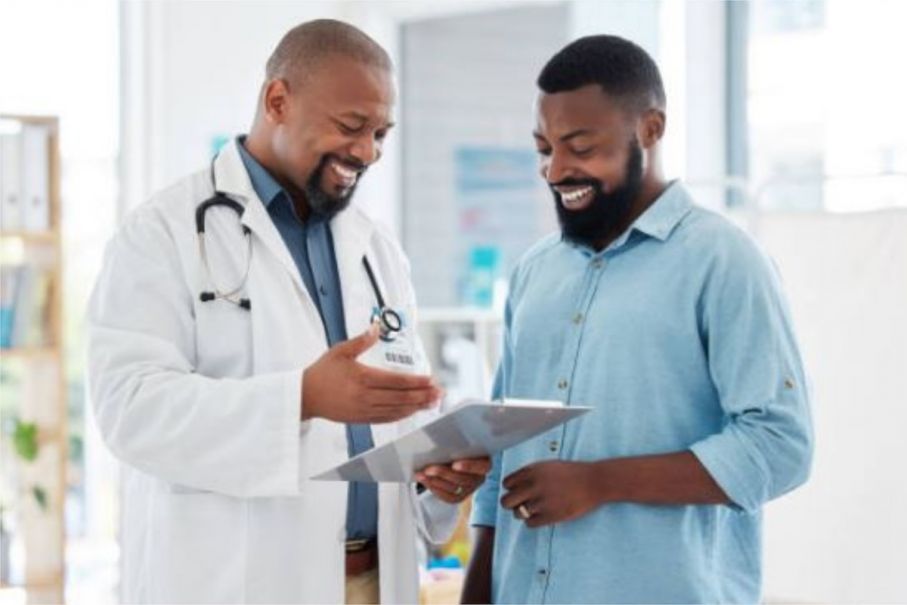Dispelling Colon Cancer Screening Myths: Here’s the Scoop on Saving Lives!
- Published in Healthy You
- Read 586 times
Discover the truth behind common myths about colorectal cancer screening! Learn why screening is crucial, debunk misconceptions, and get expert insights from colon and rectal surgeon Dr. Abraham El-Sedfy. Don't miss out on life-saving information to protect your health!
Colorectal cancer is the third most common cancer diagnosed in both men and women in the United States, with over 150,000 new cases expected to be diagnosed each year. While this cancer can be serious, the good news is that it is highly preventable and treatable, especially when detected early through screening. However, there are still many myths and misconceptions surrounding colorectal cancer screening that may prevent individuals from undergoing this life-saving procedure. Let's explore some of these myths and shed light on the truth behind getting screened for colorectal cancer.
Myth 1: "You don’t need to get screened if you don't have any symptoms."
Fact: One of the biggest misconceptions about colorectal cancer is that symptoms will always be present in the early stages of the disease. However, colorectal cancer often develops without any noticeable symptoms, making regular screening essential for early detection. Screening tests such as colonoscopy and fecal occult blood tests can detect precancerous growths or early-stage cancers before symptoms develop, significantly improving treatment outcomes.
Abraham El-Sedfy, MD, a colon and rectal surgeon, at St. Joseph’s Health, emphasizes the importance of screening, stating, "Colorectal cancer screening saves lives by detecting cancer early, when it's most treatable. Waiting for symptoms to appear can delay diagnosis and limit treatment options."
Myth 2: "Colorectal cancer screening is painful and uncomfortable."
Fact: While it's natural to feel apprehensive about undergoing a colorectal cancer screening test, advancements in technology and sedation techniques have made the process much more comfortable than in the past. For example, during a colonoscopy, patients are typically sedated to ensure minimal discomfort during the procedure. The procedure takes 15-20 minutes. Additionally, alternative screening methods, such as fecal immunochemical tests, offer a non-invasive and painless option for detecting blood in the stool, which can be an early sign of colorectal cancer.
Myth 3: “The bowel preparation for a colonoscopy is terrible.”
Fact: Although time spent in the bathroom is increased during the bowel preparation, it was the amount and the taste of the preparation solution that patients most despised. In the past, we required patients to consume a gallon of a poor-tasting liquid drink the day before the colonoscopy. But Dr. El-Sedfy shares that times have changed for the better. “Recent developments in cleansing solutions have offered us alternatives,” he says. “Patients can consume two, 6-oz servings of a bowel preparation diluted in water. It also does not taste as bad as previous cleansing solutions.”
Myth 4: "Colorectal cancer screening is only necessary for older adults and men."
Fact: While the risk of developing colorectal cancer increases with age, it can occur in individuals of any age, including younger adults. In recent years, there has been a concerning rise in colorectal cancer cases among adults under the age of 50, prompting organizations like the American Cancer Society to recommend that screening start at age 45 for average-risk individuals. “It is also important to note, the colon cancer risk is similar in both men and women,” El-Sedfy reminds us.
Colorectal cancer screening is a crucial tool in the fight against colorectal cancer, offering the opportunity for early detection and prevention of this deadly disease. Consider these points:
- Early detection of colorectal cancer leads to higher survival rates and better treatment outcomes, regardless of age.
- Screening can identify precancerous polyps, which can be removed during the procedure, preventing cancer from developing.
- Regular screening can reduce the risk of developing colorectal cancer by up to 70%.
By dispelling myths and understanding the benefits of screening, individuals can make informed decisions about their colorectal health and take proactive steps towards cancer prevention.








